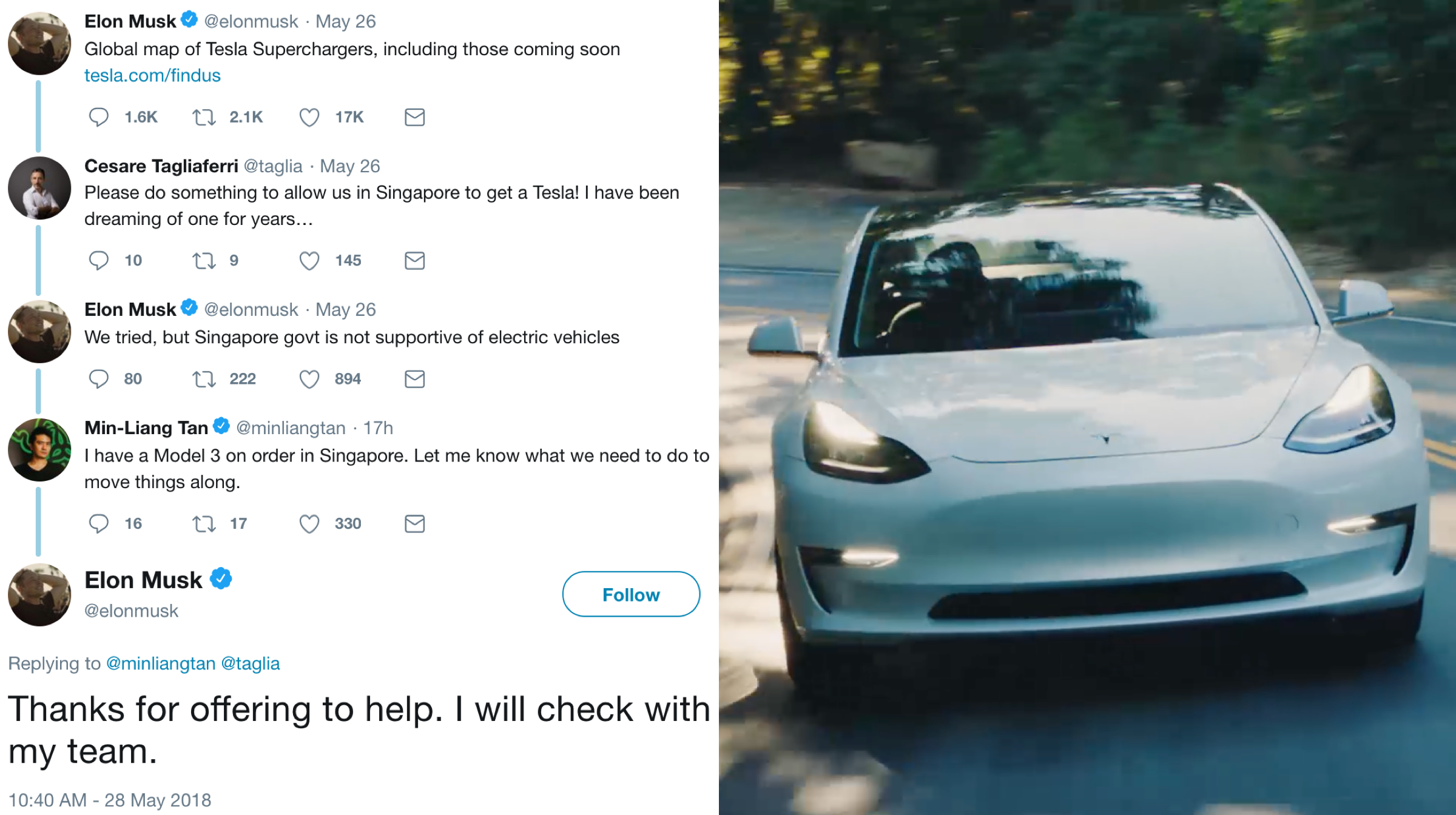Here's something that happened over the weekend that may not interest you all that much: the global launch of the new Tesla Superchargers on Sunday, May 27:
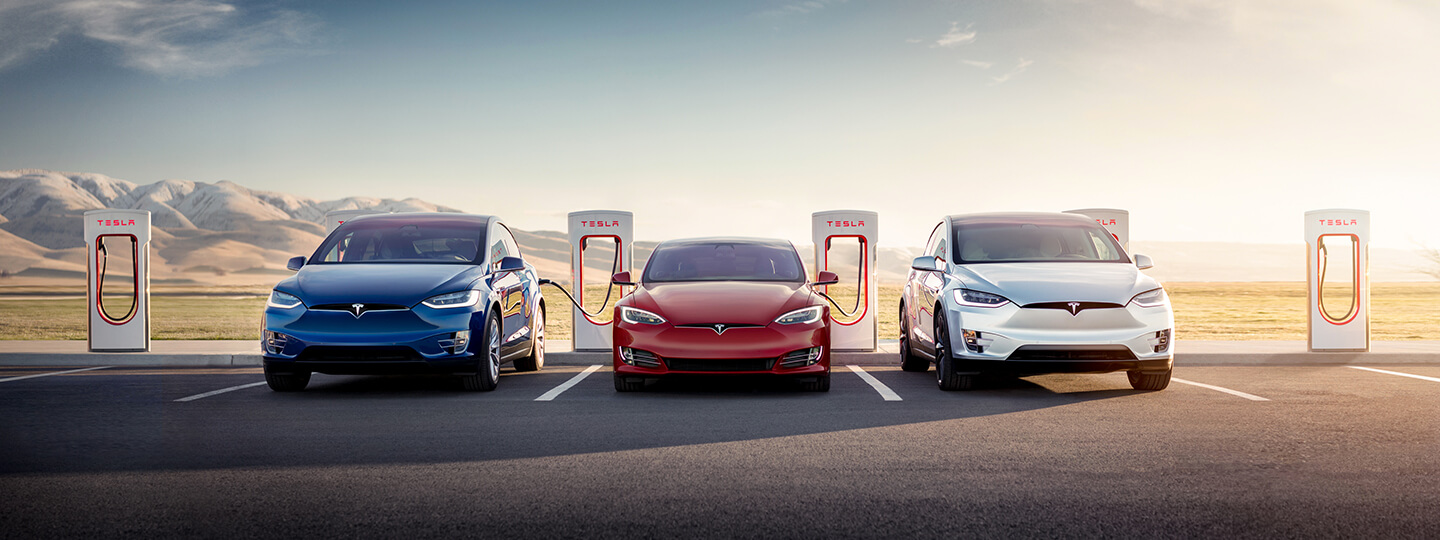 Photo via Tesla website
Photo via Tesla website
And what are Superchargers? They're quick-charging stations that can power Tesla's electric vehicles, including its line of all-electric cars that can be driven for about 380 kilometres from a single full charge.
Tesla's cars are also quiet and do not emit any gases or chemicals.
Based on the map on the Tesla website, the Supercharger stations are littered across the U.S., Europe, Eastern China, South Korea, Hong Kong, Taiwan and Japan as well as Australia and New Zealand.
However, glaringly omitted is, of course, Singapore — and a bunch of our neighbours:
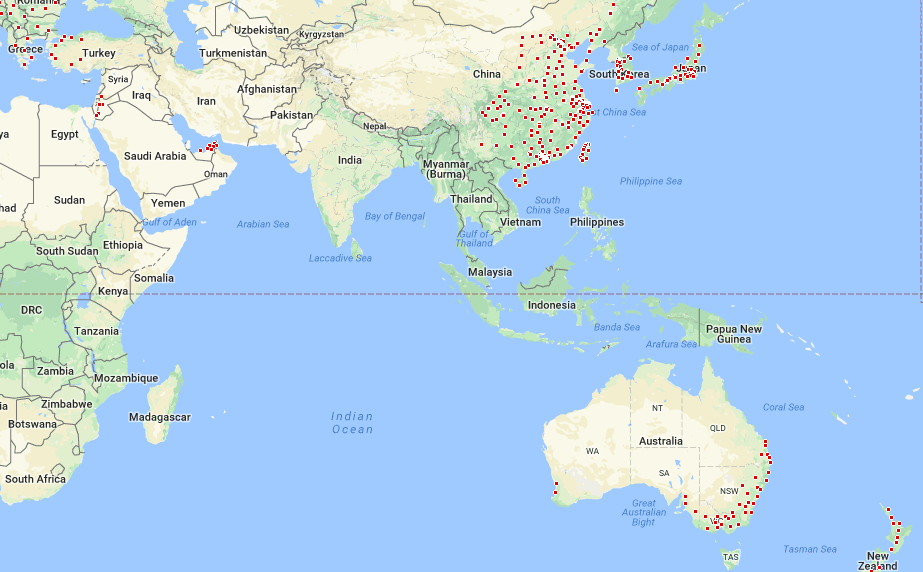 The red dots are where the stations are located. Screenshot via Tesla website
The red dots are where the stations are located. Screenshot via Tesla website
Elon Musk: S'pore govt not supportive of electric vehicles
A disappointed Singapore-based high SES fan tweeted Elon Musk, Tesla's founder and CEO:
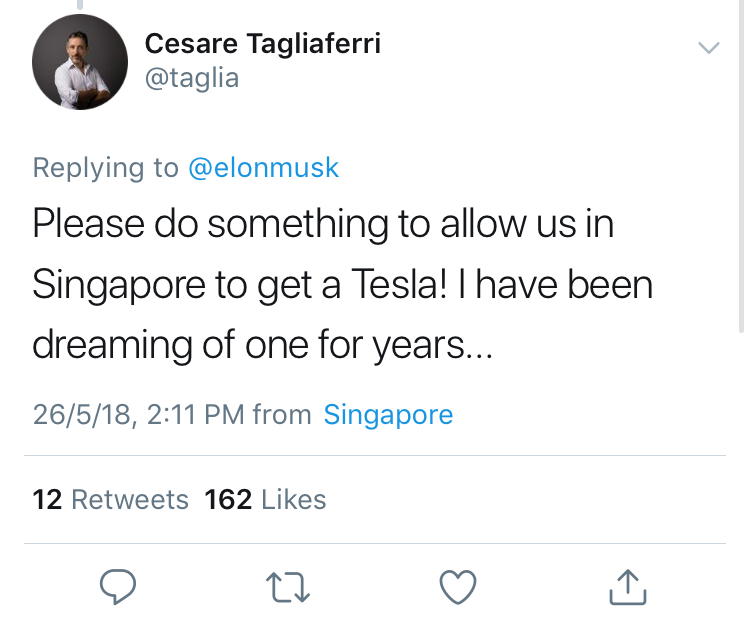 Photo via Twitter user @taglia
Photo via Twitter user @taglia
His tweet received a reply from Musk, who said they tried, but the Singapore government is "not supportive of electric vehicles".
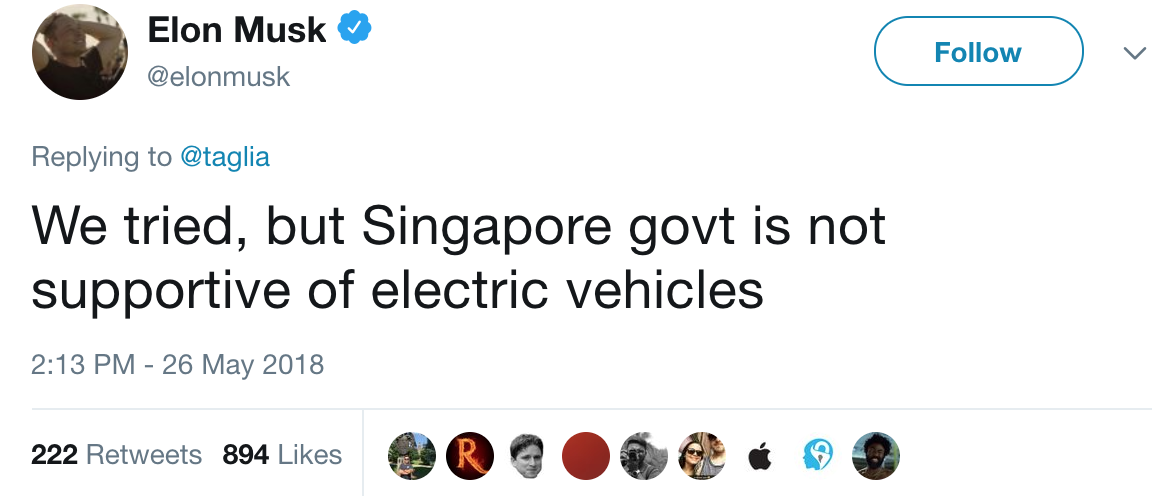 Screenshot via Twitter
Screenshot via Twitter
Razer CEO wades into conversation
Enter another filthy rich fella: Razer CEO Tan Min-Liang.
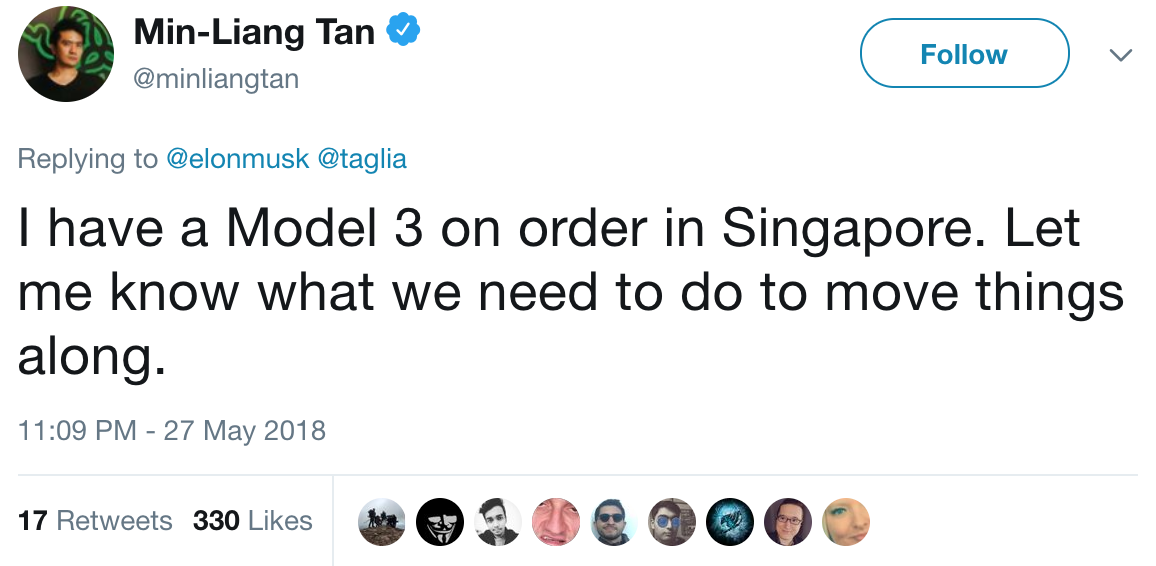 Screenshot via Twitter
Screenshot via Twitter
Musk then thanked him in reply:
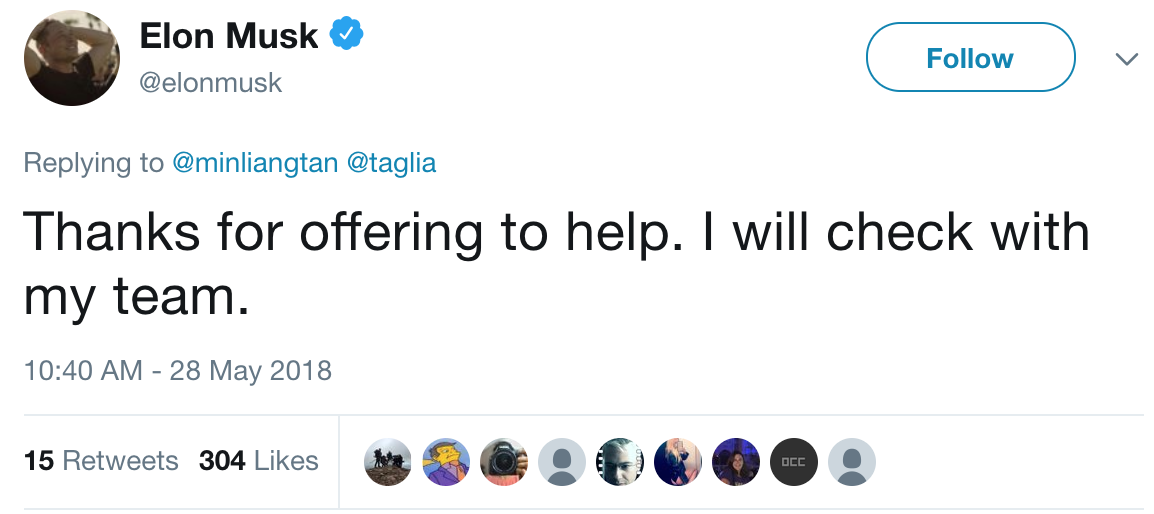 Screenshot via Twitter
Screenshot via Twitter
[related_story]
Teslas in Singapore?
Meanwhile, Musk's tweet sparked a discussion about Singapore's receptiveness to electric cars.
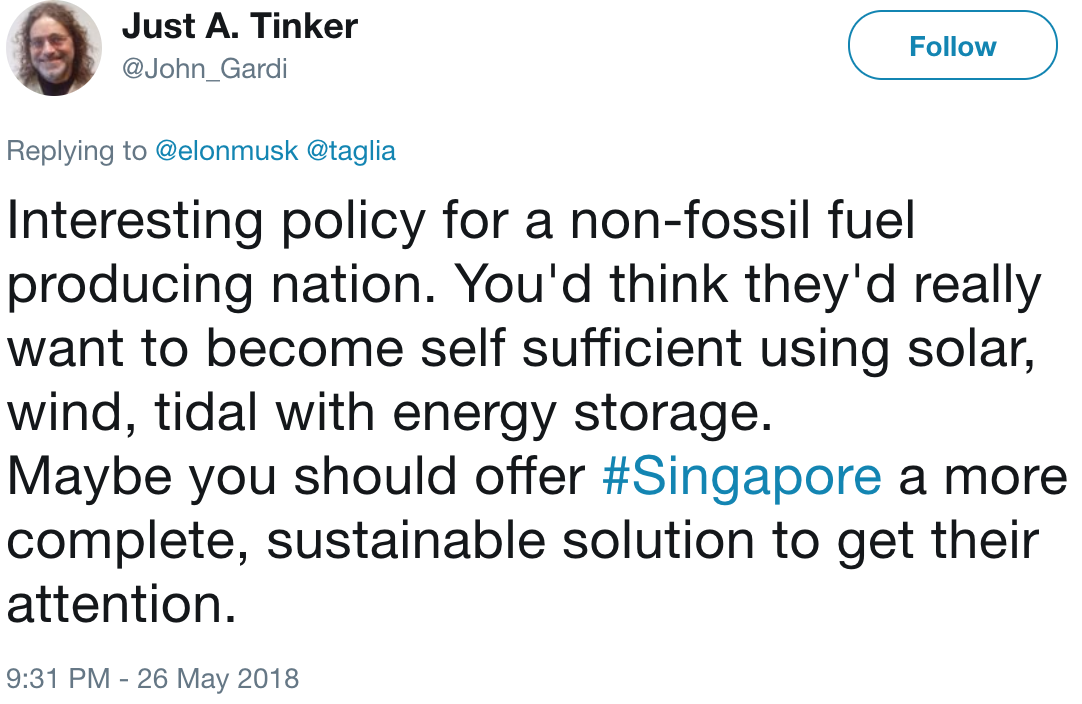 Screenshot via Twitter
Screenshot via Twitter
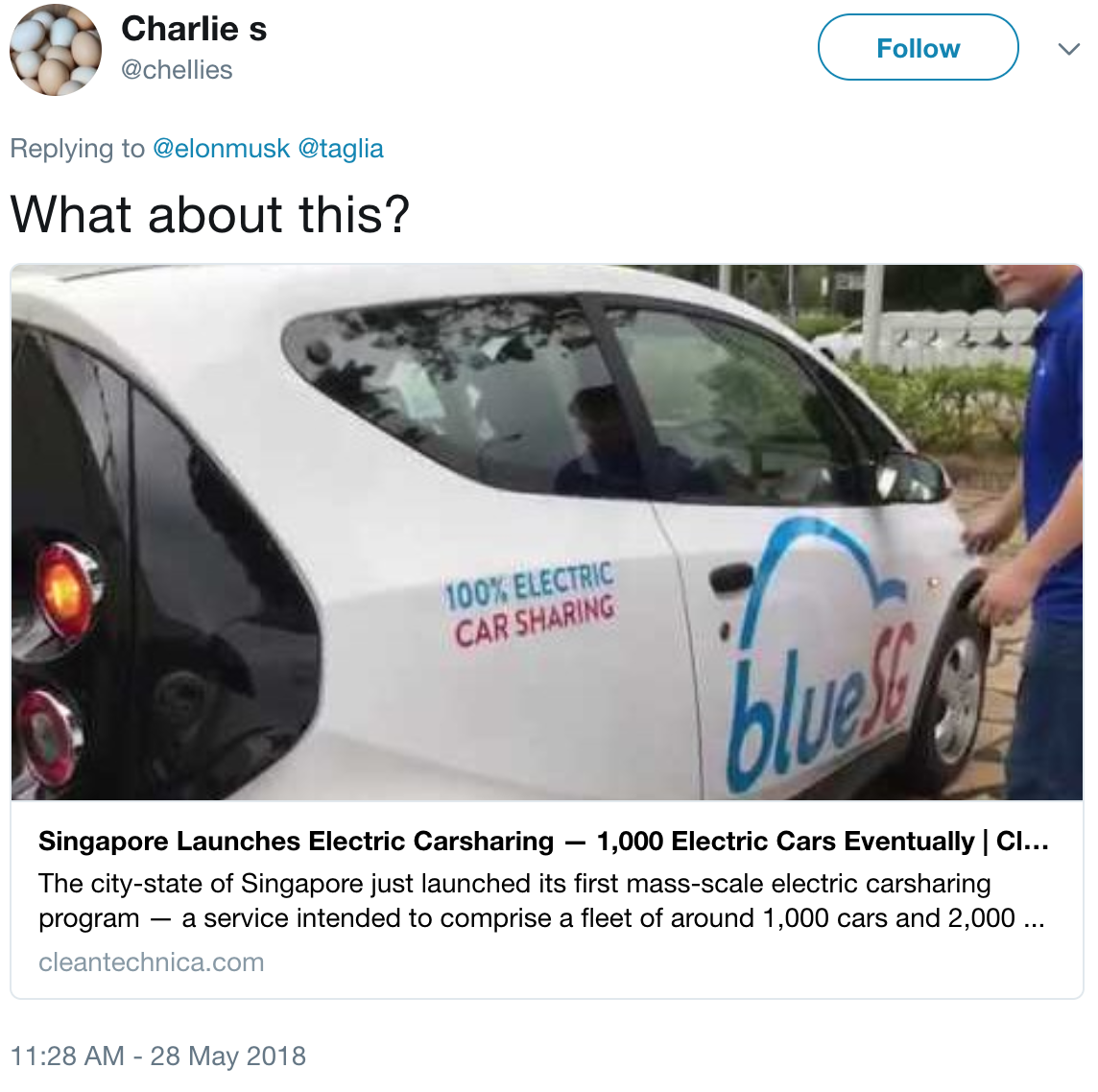 Screenshot via Twitter
Screenshot via Twitter
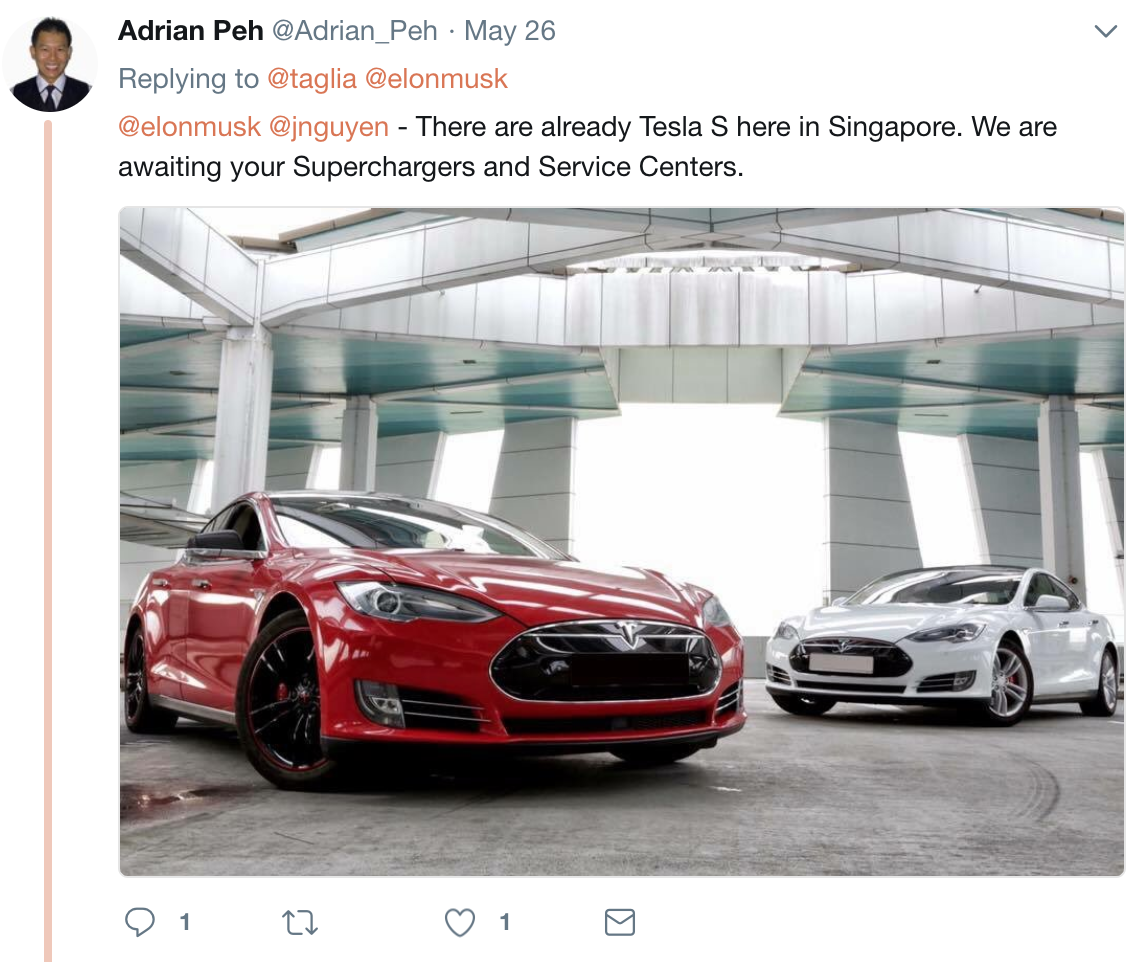 Screenshot via Twitter
Screenshot via Twitter
So let's get you up to date with what's happening on that front, because we have talked about this before.
Tesla's short-lived affair with S'pore
Tesla actually opened an office in Singapore back in 2010.
However, six months later, they closed shop without selling a single car.
At the time, the company explained that it had failed to receive any kind of tax break for its Roadster electric sports car, even though they believed they should be able to secure some kind of "green tax incentive" from the Singapore government.
Also, in a story that grabbed local headlines, it took Joe Nguyen, the senior vice-president of an Internet research firm, almost a year to finally get his imported used Tesla Model S licensed to use on the roads.
In addition, it was slapped with a S$15,000 carbon surcharge even though eco-friendly cars usually get a S$15,000 rebate.
The explanation offered by the Land Transport Authority at the time was that the Tesla Model S it tested had a high electrical consumption of 444Wh/km as it was a used vehicle. Hence, it fell into the CEVS C3 band:
Should it be brand new and fall into the CEVS A1 band, it would have enjoyed the S$15,000 rebate.
Tesla then said it would look into the LTA's findings, suspecting it had tested the car wrongly:
Apart from that, things have been quiet on the regulatory front with regard to Teslas since, although Musk opened up his new Model 3 car for order to ship to Singapore two years ago:
And since Tan has ordered himself one, who knows? We might see some developments there soon enough, considering he's on tweet-touch basis with PM Lee too:
Embarking on the electric-car journey
According to The Business Times, there were 520 electric vehicles in Singapore by the end of 2017 -- an increase from only 137 at the end of 2016.
However, electric cars are still the minority group in our vehicle population, making up just 0.09 per cent of the 574,443 passenger cars in Singapore in 2017.
But the government has thrown its weight behind electric car-sharing firm BlueSG, which launched its fleet of fully-electric cars late last year:
It is also targeting to greatly increase its fleet up to 1,000 cars and 2,000 charging points all over Singapore.
Other countries in the region are catching up with the trend towards clean energy and the reduction of carbon emissions, though, whether or not Singapore moves on Teslas.
In Hong Kong, for instance, Tesla cars were once the best-selling car brand in 2015, helped by tax benefits that help boost demand for green vehicles.
China is also working on a plan to ban the production and sale of vehicles powered only by fossil fuels.
India has also committed to sell only electric cars by 2030 -- a move praised by Musk. Its government said it would also offer subsidies for "a couple of years" to help facilitate the nationwide effort to move toward electric cars — although it has since revised its initial ambitious target to 30 per cent of car sales by that year.
Other countries such as Norway, Britain and France have also announced plans to phase out all gas and diesel-powered vehicles.
The Model 3, which Tan Min-Liang said he ordered, can be reserved for a small US$1,000 (S$1,338) fee now.
You know, just in case you were interested.
Top image adapted via Tesla & Twitter
Related stories:
Vaguely related stories:
Some unrelated but equally interesting stories:
How to train to be a ninja warrior, in your office
Watch a concert with your ears only at this Esplanade concert in the dark
Long-term care is one awkward conversation you must have with your parents
If you like what you read, follow us on Facebook, Instagram, Twitter and Telegram to get the latest updates.
